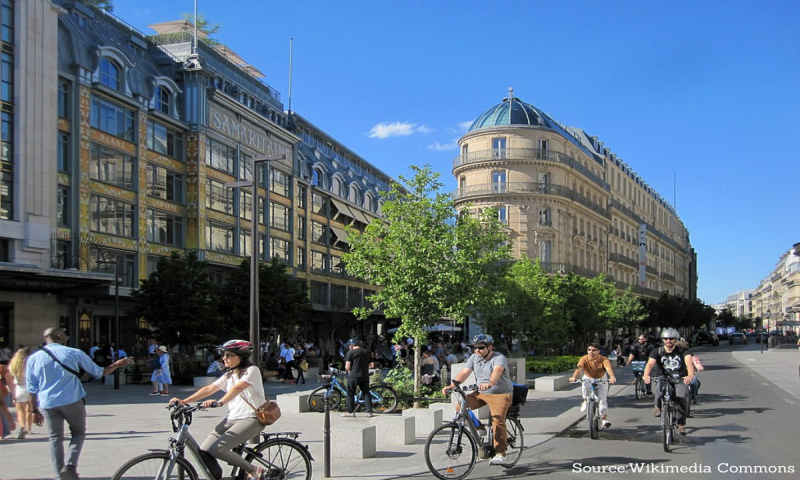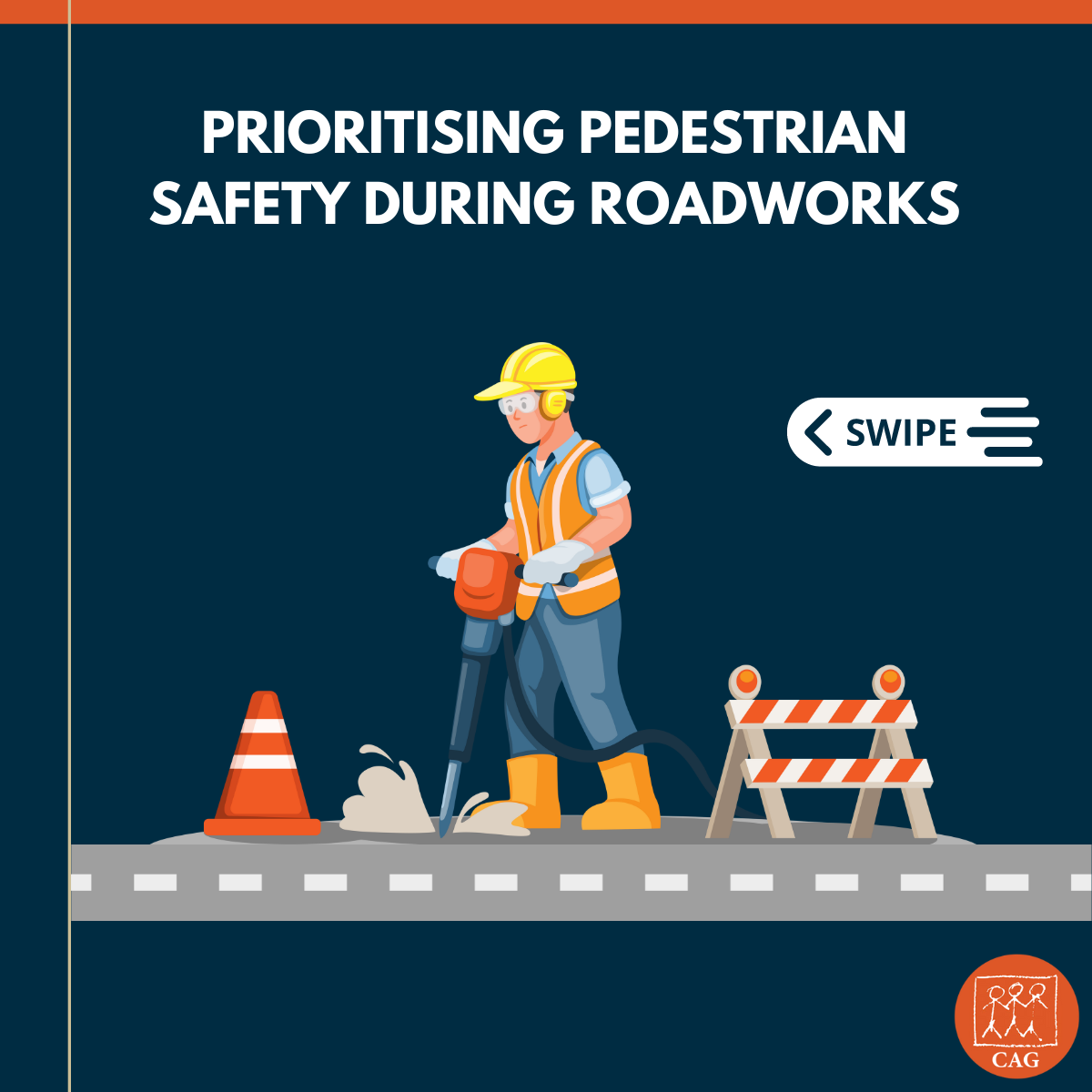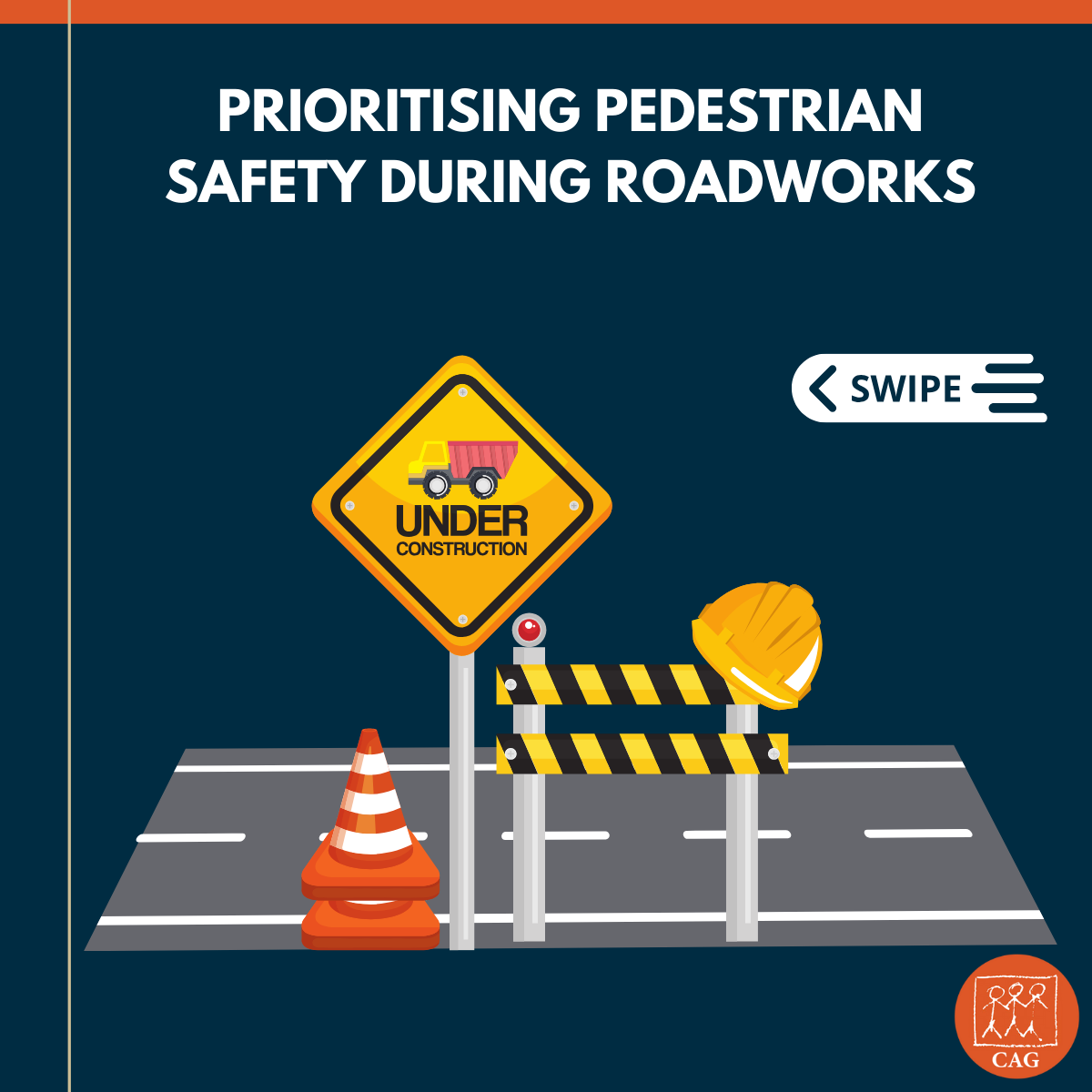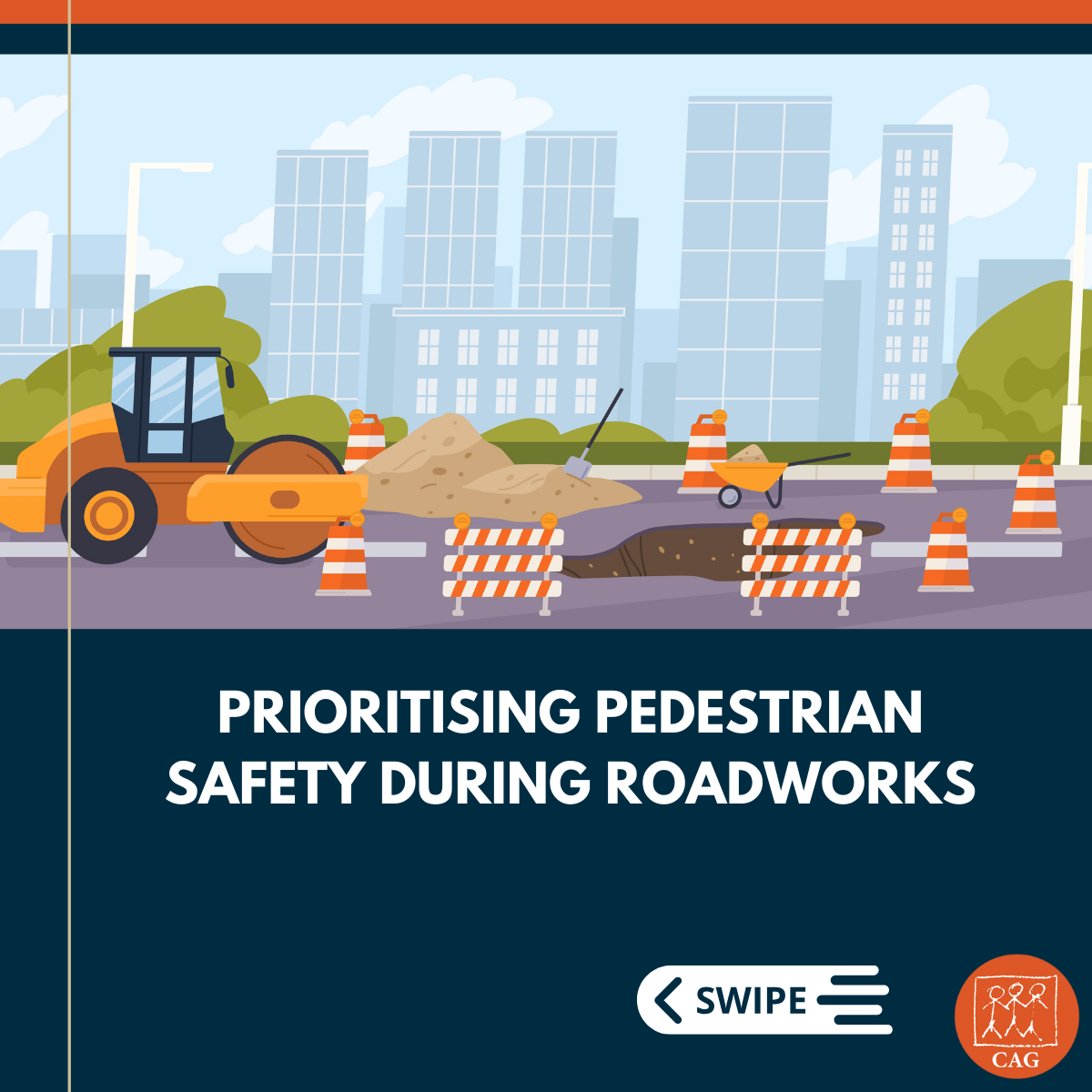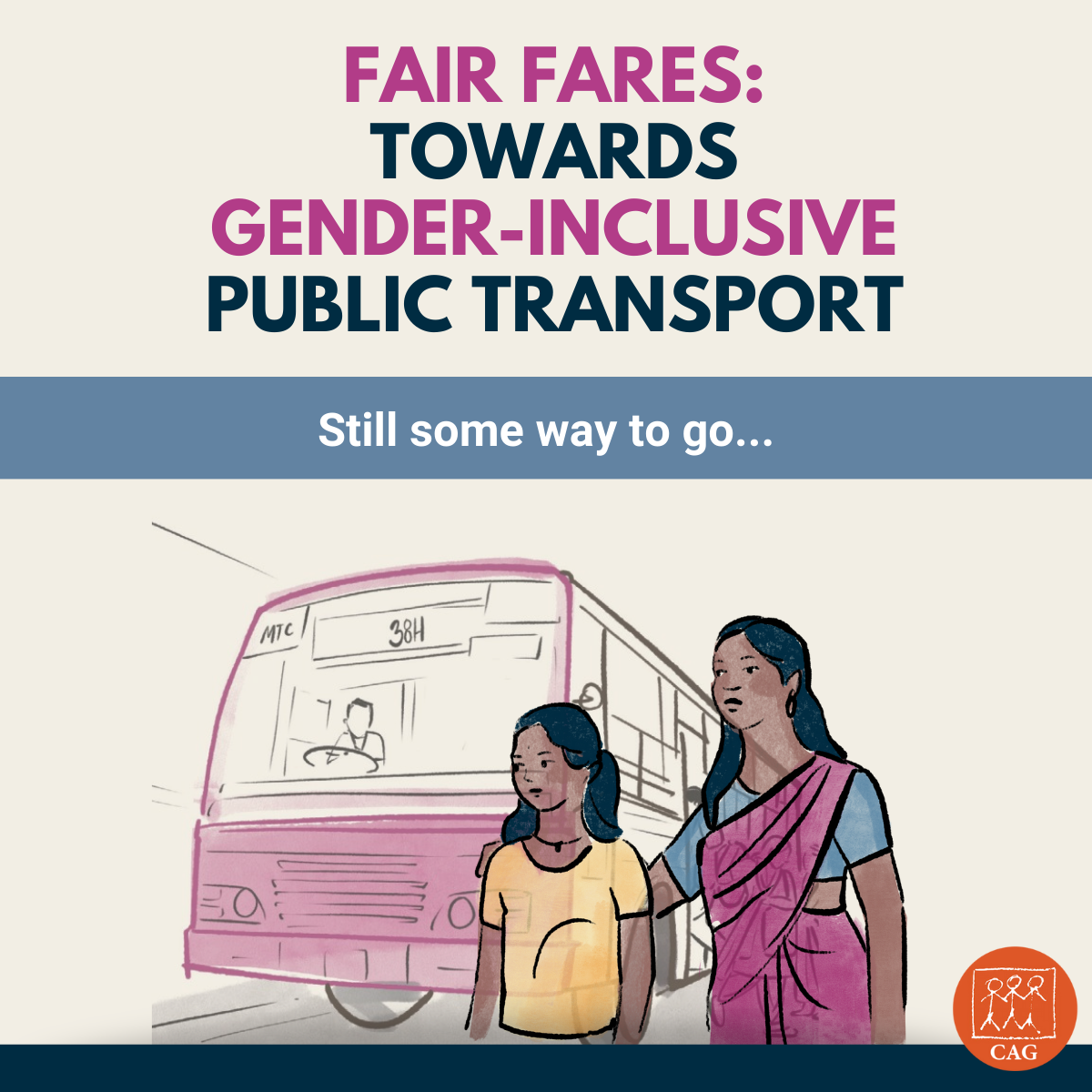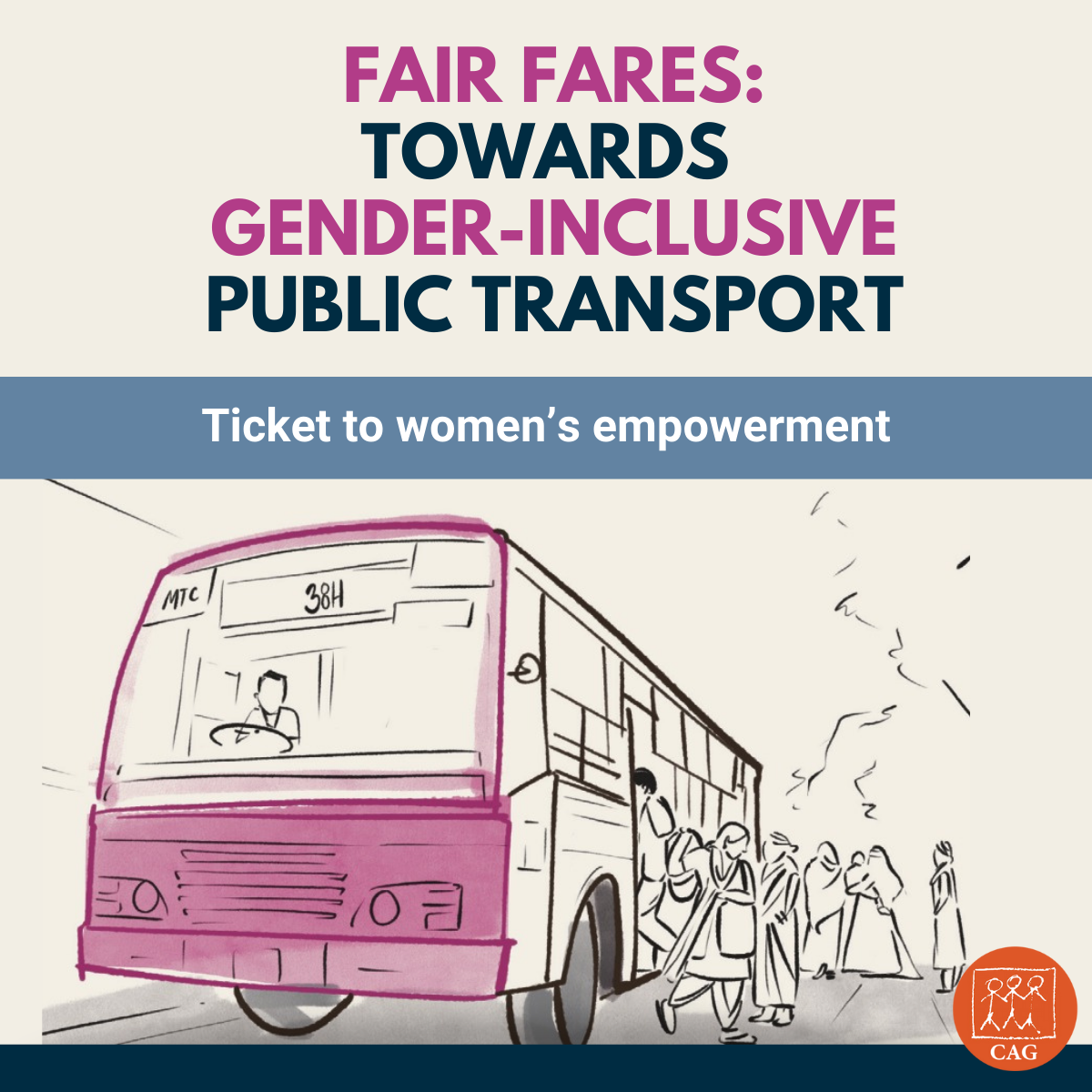Fair Fares: Towards Gender-Inclusive Public Transport
CAG surveyed 3000 women across 6 cities to understand the impact of the fare-free public transport scheme for women launched by the Tamil Nadu government. The study found that women were able to save an average of Rs 601 to Rs 800 per month as a result of this scheme. Additionally, the study highlighted that the saved transportation expenses were predominantly invested in the family. Find out more from the full report.
